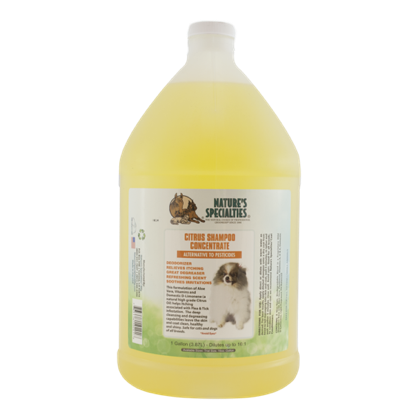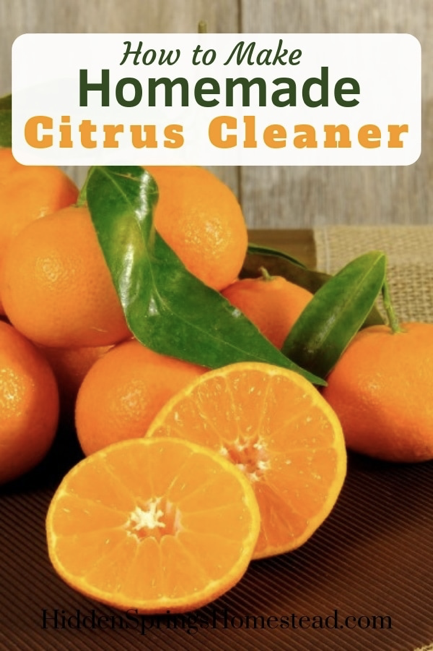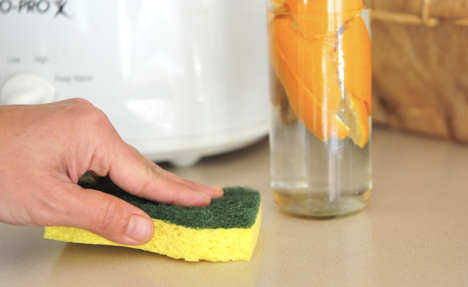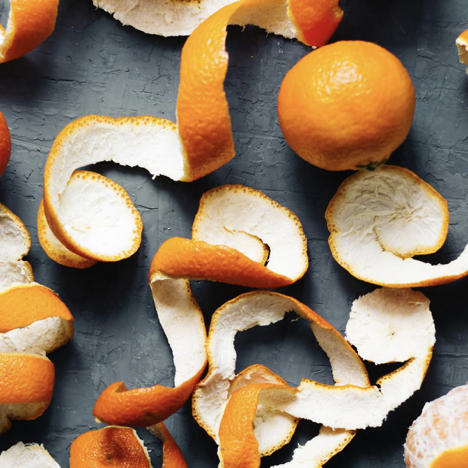Non-Toxic and Inexpensive Homemade Cleaner
It starts with citrus. The Boeing Company has used citrus to replace metal polishes. In their paint department, citrus replaces dangerous solvents. The American Princess Cruise Line uses citrus in the engine room and other areas as a heavy duty degreaser and effective cleaner. When the Exxon Valdez spilled oil over Prince William Sound in Alaska a years ago, citrus cleaners were used to clean up the oily rocks.

They are used by some environmental remediation companies to 'loosen' the oil in the ground from leaking storage tanks so that oil eating bacteria can more easily digest the oil, helping protect our drinking water. Many printers use citrus cleaners to remove the ink from their press rollers. Citrus based cleaners are being tested by some micro chip manufacturers to clean silicone chips before micro circuits are imprinted, replacing ozone-damaging CFC's.
Another area where citrus reigns is in replacing insecticides and pesticides in agriculture and home applications. One example: the use of citrus in pet shampoos for flea and tick removal. Research is also being done at Oregon State University using citrus as an orchard spray to control apple fly maggots. Testing shows it’s effective against invasions of dry rot termites and cockroaches. And in the southwest, citrus is being used to kill fire ants.

Impressive, but how does this apply to you and me? Well, red alert (or actually, ORANGE alert)! We can make our OWN, natural citrus oil cleaner! I know this idea has been around a long time now. But I’m sharing this information anyway, for those that aren’t aware.
Here’s what you do: Save your citrus peels. When you have two or three quarts-worth, place them and vinegar in a large glass jar. And actually, the more peels, the better. You want to cover all the peels with vinegar.

Put the jar in a cool, dark place, and let it sit for 4-6 weeks (the longer the better). Every few days, take the jar out and give it a stir or shake. It will begin to smell less vinegary and start to smell like a dream. A lovely, sparkly fresh, clean dream... filled with citrus.
Once your 4 to 6 weeks are up, strain the liquid from the peels using a coffee filter or cheesecloth. For most cleaning situations, dilute the orange cleaner to 1/2 cup per gallon of water. Spritz away!
For greasy stovetops, don't dilute the mixture. Just spray a thin layer of straight-up cleaner on the stove and be amazed at the superhero peels that you almost tossed into the trash!

And, you don't need to eat a bunch of oranges all at once to fill up your jar. Just keep adding the peels to your jar and covering with vinegar until you are sick of citrus or until the jar is full. If you do the add-as-you-go method, start the 4-6 week countdown after you toss in the last peel.
One caution, though: If you are not using organic oranges, remember to give your citrus a good scrub before peeling and eating. Scrub 3 times as hard (preferably with some type of veggie/fruit cleaner) to remove the wax sealing and whatever chemicals have been sprayed on them.

Lastly: Research shows that if you have some kitties or cats, be careful using any citrus oil in your house. They are sensitive to it, and cleaning an area around their usual hang-out spot may cause them to get all ‘catty’ and wet on your bed. (You have to wonder how the researchers discovered this…)
By the way, speaking of citrus peel and cats, I just heard in a gardening class yesterday that laying citrus peel in your garden beds or flower boxes will keep pottying cats away. I’ll be trying this as well. The neighbor’s cats think they own our front porch flower boxes!

They are used by some environmental remediation companies to 'loosen' the oil in the ground from leaking storage tanks so that oil eating bacteria can more easily digest the oil, helping protect our drinking water. Many printers use citrus cleaners to remove the ink from their press rollers. Citrus based cleaners are being tested by some micro chip manufacturers to clean silicone chips before micro circuits are imprinted, replacing ozone-damaging CFC's.
Another area where citrus reigns is in replacing insecticides and pesticides in agriculture and home applications. One example: the use of citrus in pet shampoos for flea and tick removal. Research is also being done at Oregon State University using citrus as an orchard spray to control apple fly maggots. Testing shows it’s effective against invasions of dry rot termites and cockroaches. And in the southwest, citrus is being used to kill fire ants.

Impressive, but how does this apply to you and me? Well, red alert (or actually, ORANGE alert)! We can make our OWN, natural citrus oil cleaner! I know this idea has been around a long time now. But I’m sharing this information anyway, for those that aren’t aware.
Here’s what you do: Save your citrus peels. When you have two or three quarts-worth, place them and vinegar in a large glass jar. And actually, the more peels, the better. You want to cover all the peels with vinegar.

Put the jar in a cool, dark place, and let it sit for 4-6 weeks (the longer the better). Every few days, take the jar out and give it a stir or shake. It will begin to smell less vinegary and start to smell like a dream. A lovely, sparkly fresh, clean dream... filled with citrus.
Once your 4 to 6 weeks are up, strain the liquid from the peels using a coffee filter or cheesecloth. For most cleaning situations, dilute the orange cleaner to 1/2 cup per gallon of water. Spritz away!
For greasy stovetops, don't dilute the mixture. Just spray a thin layer of straight-up cleaner on the stove and be amazed at the superhero peels that you almost tossed into the trash!

And, you don't need to eat a bunch of oranges all at once to fill up your jar. Just keep adding the peels to your jar and covering with vinegar until you are sick of citrus or until the jar is full. If you do the add-as-you-go method, start the 4-6 week countdown after you toss in the last peel.
One caution, though: If you are not using organic oranges, remember to give your citrus a good scrub before peeling and eating. Scrub 3 times as hard (preferably with some type of veggie/fruit cleaner) to remove the wax sealing and whatever chemicals have been sprayed on them.

Lastly: Research shows that if you have some kitties or cats, be careful using any citrus oil in your house. They are sensitive to it, and cleaning an area around their usual hang-out spot may cause them to get all ‘catty’ and wet on your bed. (You have to wonder how the researchers discovered this…)
By the way, speaking of citrus peel and cats, I just heard in a gardening class yesterday that laying citrus peel in your garden beds or flower boxes will keep pottying cats away. I’ll be trying this as well. The neighbor’s cats think they own our front porch flower boxes!
Sources:
- www.time.com
- www.naturesspecialties.com
- www.hiddenspringshomestead.com
- www.wikihow.com
- www.readersdigestcanada.com
 Alice Osborne
Alice Osborne
Weekly Newsletter Contributor since 2006
Email the author! alice@dvo.com
